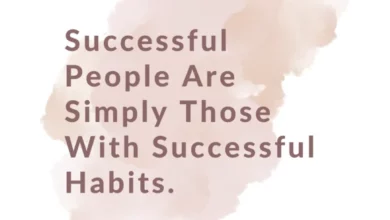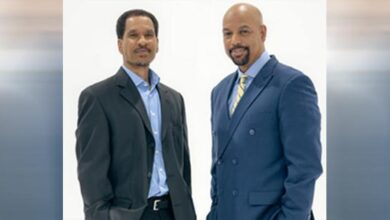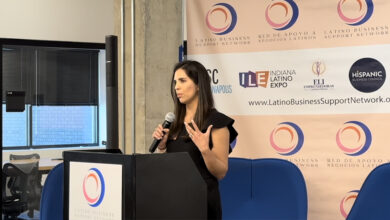Obama and the Hunger for a Black President
 by Rudolph
by Rudolph
Lewis
“We prefer symbols to the real substance
of black liberation.”
The hunger for a Black President is rather silly,
superficial black politics. It shows our political immaturity and our
desperate lack of a real black leader. It shows we prefer symbols to the real
substance of black liberation. It shows that we have more faith in political
operatives and political collaborators than real black leaders. It shows also
the fear these operatives have of being a black leader – poverty, imprisonment,
flight, assassination. That is the tragic history of real black leaders; these
extreme deficiencies (penalties) of leadership are the burdens of true leaders
of the oppressed.
Such black leaders must essentially threaten the “Peculiar
Institution” of America, long thought of by scholars as American slavery, which
Virginia now “profoundly regrets.” But slavery (as hereditary bond-laborers)
has been dead since 1865 and Jim Crow (racial segregation) has been essentially
dead since 1965. Yet African Americans remain an oppressed people, suffer daily
from racism in every aspect of American life. Bond servitude, which was visited
upon European Americans as well as Native Americans, however, was not the
“Peculiar Institution.”
The “Peculiar Institution,” Theodore Allen argues, was
rather the official institution of the “white race” at the beginning of 18th-century
America, around about 1705 in the State of Virginia during the reign of
Governor William Gooch. Speaking
against a genetic origin of racism, Allen explains, “The ruling class took special pains to be sure that the people they ruled
were propagandized in the moral and legal ethos of white-supremacism . . . the laws mandated that parish clerks
or churchwardens, once each spring and fall at the close of Sunday service,
should read (“publish”) these laws in full to the congregants” (Invention of the White Race, vol. 2,
251).
These 1705 and 1723 legislative acts of Virginia were
instituted to “separate dangerous free whites from dangerous slave blacks.”
They were a ruling class means to avoid another interracial Bacon’s Rebellion
against the bourgeois planters, whose primary interest was the lowering of
labor costs, the engrossment of land, and the concentration of capital
ownership. That is, Gooch’s intent was to “make race, not class, the
distinction in America’s social life.”
“The ‘white
race’ invention by Virginia established the ‘contours of American
history.'”
The Virginian ruling classes thus
instituted for the first time in the history of America (and possibly in the
world) preferences based on “whiteness”: “no free African-American was to dare
to lift his or her hand against a ‘Christian, not being a negro, mulatto or
Indian’; that African-American freeholders were no longer to be allowed to
vote; that the provision of a previous enactment [1691] was being reinforced
against the mating of English and Negroes as producing ‘abominable mixture’ and
‘spurious’ issue; that, as provided in the 1723 law for preventing freedom
plots by African-American bond-laborers, ‘any white person . . . found in
company with any [illegally congregated] slaves’ was to be fined (along with
free African Americans or Indians so offending) with a fine of fifteen
shillings, or to ‘receive, on his, her, or their bare backs, for every such
offense, twenty lashes well laid on’.” (Invention of the White Race, vol. 2, 251).
The creation of this “white” buffer between the ruling
classes and African Americans (bond and free)
took hold, spread from town to town, county to county, state to state. This
“white race” invention by Virginia established the “contours of American
history.” The racial castes of “blacks”
at the bottom and “whites” above and the privileging of skin in social status,
in trades, land ownership, capital accumulation, in professions remain with us
today in every sector of American life. Racism is thus at “the essence of
American bourgeois democracy.” This “safety valve of white skin privilege,” a
three-century old “incubus” has thus, says Theodore Allen, “paralyzed laboring
class European Americans in the defense of their class interest vis-à-vis those
of the ruling class” (Invention of the White Race, vol. 2,
259).
Many of today’s black leaders
(businessmen, educators, politicians, and others of the professional classes)
neither possess nor promote this historical deliberate view of America’s
institutionalizing racism and racial oppression as a corporate means of making
profit and concentrating wealth. Too many have anti-working class biases and
believe that rednecks founded racism and armed themselves for racial oppression
on their own behest of eliminating competition. Others believe that racism is
in the genes. Still others believe that liberation can come merely by a mental
adjustment of attitudes. Thus, in this context, we have plenty of
entertainers – black political entertainers and black political pundits – all
of which have made their deals with the wealthy and the powerful and have
become, as individuals, wealthy and powerful.
It is also in
this context that we have an African American running to be the Democratic
Party’s choice for president of the United States. Mainstream electoral
politics is not “the” solution, for black liberation, especially in
how it is presently conceived and used.
Mainstream electoral politics cannot for us be an end in itself. We will
not be a free people unless we are willing to withhold our vote from mainstream
parties. Most black leaders are tied, however, inextricably to the mainstream
parties, even the Nation of Islam. These ties by individual black
leaders lead to political corruption, which is a serious barrier to
substantive efforts toward black liberation. Those political ties only serve
individual blacks, rather than the masses of blacks.
“We have plenty of entertainers – black political
entertainers and black political pundits – all of which have made their deals
with the wealthy and the powerful.”
The masses of working class blacks have lost faith in
this mainstream strategy, which has been in operation for more than
two decades and thus they do not go to the polls. In effect, they are
boycotting the polls. I am with them in this rejection and support their
non-participation. But our leaders have not taken political advantage of this
non-participation, rather they have castigated this political act (as
ignorance), for it runs against their collaboration with these parties in the
oppression of the general black population and it undercuts their influence
with these parties and thus their payoff.
There is a general trend that promotes voting regardless.
That is, voting for the less of two evils. These cynics used the strangest
of arguments to support this waste of energy, time, and political clout. They
will use history of the struggle for voting rights and one’s ancestors to
demonstrate the obligation to vote. They derisively attack the ignorance of
non-voters who refuse to support one set or other of their corporate
and political oppressors. Well, such arguments do not set us
on the path of liberation. It walks away from true political
responsibility to our people. If we are truly a free people each has not
only a right to vote, but each also has a right not to vote. Voting for
the less of two evils forces each black person to play their oppressors’
game. It is like voting whether my slaveholder is more benevolent
than your slaveholder. Whatever the vote slavery remains and subjects all to an
outrageous and abusive system.
That kind of
political action does not lead to the parting of the sea or the crossing over
to Jordan. It does not cause the walls to fall down. This philosophical view is
at the heart of the criticism of black leadership. One has to commit oneself
with one’s feet; that is, one must be willing to walk away from the choice of
two evils. None has formulated this as the essential problem of black
politics today. Rather there is a labor to keep the masses in the dark,
voting blindly and mechanically. These mainstream leaders do not want to
formulate non-voting into a potent political message.
“Voting for the lesser of two evils forces each black
person to play their oppressors’ game.”
If African Americans truly desire full liberation they
cannot be a slave to the Democratic Party and Republican parties, or any
mainstream party that stands pat with the status quo of racism and
skin-privileging. If we wish to use the full force of the black vote, we must
consider other options; that is, if we seek an end to racism and racial
oppression in America’s social, economic, and political life. The Democratic
Party cares less whether Negroes are racially oppressed or not. What they care
first and foremost about is winning.

We as a people must be at least free in our thinking to do
whatever is necessary to bring pressure to bear for our overall interests and
those of the nation. If that mean disrupting the normal course of electoral
politics by boycotting the polls, then that is what we must do. Otherwise, the
Democrats will continue to play to white middle class issues and white middle
class interests which have a subtext of white-skin privileging. That’s bad news
for us as a people. The Democrats will play to those concerns in their
competition with the Republican Right. And black people’s issues will be pushed
into a dark corner.
That is the essence of what has happened since Reagan
came on the scene in the 1980s and our elected black leaders have
played this piecemeal game, and lost. They have negotiated behind closed
doors (with corporate executives and congressional politicians) for tokens of
full liberation. That strategy in the last two decades of being a slave to the
Democratic Party has brought us political and economic losses rather than
gains.
This is a new
age. We can no longer recognize political gains by the symbolic counting of
“black faces in high places” or in political offices. That’s simple-minded
black politics, the crudest form of a political philosophy or black
perspective. Obama’s presidential candidacy is just another way of pulling
African Americans back into voting for the Democratic Party once again. It
is a sham tactic; it is a distraction. It pulls us away from our basic concerns
as a people, that is, our issues of (poverty, unemployment, education,
criminalization, discrimination, etc.) produced by a regime of white-skin
privileging. These consequences are sometimes referred to as the “Black
Agenda.”
“We can no longer recognize political gains by the
symbolic counting of ‘black faces in high places’ or in political
offices.”
What is worse in these days is that our present mainstream
leaders will not even go so far as to present a “Black Agenda” or
a “Black Platform” to the Democratic or Republican parties.
There is not one mainstream black insider willing to demand one. That shows us
how superficial the black connection is with the Democrats. For they know,
that Negroes are so pleased to have the right to vote that they will vote for
the Democrats, regardless; for obviously the Republicans know that they
can win without the Negro vote and so they do not have to negotiate whatsoever.
Spiro Agnew asked us back in 1967, who else are you going to
vote for if you don’t vote for me? That’s the attitude of the Democrats today.
Recall what Agnew did when he became governor of Maryland. In April 1968, after
the Baltimore riots, he told the mainstream black leaders that they were not
responsible, that they had neglected their duty to keep the Negroes in line,
that they had allowed the “militants” to get a foothold within the communities
to cause havoc and damage. He talked to them as if they were his children or
personal slaves. And then he went on to become Vice-President of the
United States.
Aren’t we yet tired of these kinds of political
machinations? Don’t our people deserve more? Doesn’t America deserve
more? We must go beyond “black agendas” and demand an end to racism and
racial oppression in every aspect of American life. There are indeed secondary
and tertiary issues made more prominent than the primary understated class
antagonisms that exist here in America, with the wealthy becoming more
shamelessly wealthy and the poor becoming more desperately poor. Racism and
racial oppression are the major means by which this obfuscation of class
antagonisms continues its three-century reign in American history and politics.
That individuals are bogged down in their individual agendas to attend to this
fact is regrettable.
As long as that remains the case, the worst will be for all
of us – black and white, whatever our individual agendas may be. Our food will
not taste as it should. Our class comfort will not be quite as comfortable. Our
professions will not be so enjoyable. Our reflections of whatever type will not
be as clear as it might. For each of us will have avoided with great
energy the key issue that has colored our existence in America –
racism and racial oppression, a system that has broadened the social gap
between the Titans of Capital and the common people, with the masses of blacks
remaining at the bottom of the socio-economic ladder.
Our true black leaders must be willing to take a new path,
create a new rhetoric, support more radical politics-withdraw from mainstream
electoral parties, boycott the presidential elections, etc.-until our
liberation is achieved. If that means we must leave some of our black brothers
behind in the Democratic and Republican parties, then let it be. We will join
hands with others – European Americans, Asian Americans, and Hispanic Americans
– to make a new America that is not dependent on racism and racial oppression
as a means of lowering labor costs,
seizing control of land, and concentrating capital as a means of producing the
highest rate of profit.
Rudolph Lewis is publisher
and editor of ChickenBones: A Journal for Literary & Artistic
African-American Themes. He can be contacted at [email protected]





